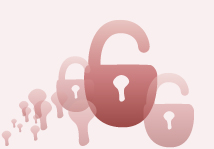Programme Committee Chairs
Kai Rannenberg, Goethe University Frankfurt, Germany
Vijay Varadharajan, Macquarie University, Australia
Publication Chair
Christian Weber, Goethe University Frankfurt, Germany
Programme Committee Members
A. Aldini, University of Urbino, Italy
C. J. Armstrong, Curtin University, Australia
V. Atluri, Rutgers University, USA
T. Aura, Microsoft Research, UK
M. Bañón, Epoche & Espri, Spain
R. L. Baskerville, Georgia State University, USA
J. Benaloh, Microsoft Research, USA
C. Benzmüller, International University, Germany
J. Biskup, T.U. Dortmund, Germany
R. Botha, NMMU, South Africa
L. Bussard, Microsoft EMIC, Germany
J. Camenisch, IBM Research, Switzerland
K. Cameron, Microsoft, USA
L. Chen, Hewlett-Packard Labs, UK
M. Christodorescu, IBM TJ Watson Research Center, USA
R. Clarke, Xamax Consultancy Pty Ltd, ANU and UNSW, Australia
R. Clayton, University of Cambridge, UK
C.J.F. Cremers, ETH Zurich, Switzerland
M. Crompton, Information Integrity Solutions and NICTA
N. Cuppens-Boulahia, TELECOM Bretagne, France
E. Dawson, QUT, Australia
S. De Capitani di Vimercati, Universita` degli Studi di Milano, Italy
B. de Decker, K.U. Leuven, Belgium
M. de Soete, Security4Biz, Belgium
Y. Deswarte, LAAS-CNRS, France
G. Dhillon, Virginia Commonwealth University, USA
T. Dimitrakos, BT Innovate & Design, UK
R. Dodge, U.S. Military Academy, USA
J. Eloff, University of Pretoria, South Africa
A. Escudero-Pascual, it46.se, Sweden
H. Federrath, University of Regensburg, Germany
S. Fischer, University of Lübeck, Germany
S. Fischer-Huebner, Karlstad University, Sweden
U. Flegel, SAP, Germany
S. N. Foley, University College Cork, Ireland
F. Freiling, Mannheim University, Germany
A. Fuchsberger, Microsoft Corp, USA
W. Fumy, Bundesdruckerei, Germany
S. Furnell, University of Plymouth, UK
M. Gasson, University of Reading, UK
V. D. Gligor, Carnegie Mellon University, USA
D. Gollmann, TU Hamburg-Harburg, Germany
R. Grimm, University of Koblenz, Germany
D. Gritzalis, Athens University of Economics & Business, Greece
M. Hansen, Independent Centre for Privacy Protection, Germany
H. Hedbom, Karlstad Universitet, Sweden
M. Heisel, University Duisburg-Essen, Germany
U. Helmbrecht, ENISA, EU
P. Herrmann, NTNU, Norway
A. Hevia, Universidad de Chile, Chile
M. Hoelbl, Maribor University, Slovenia
J.-H. Hoepman, TNO & Radboud University Nijmegen, the Netherlands
E. Humphreys, XISEC, UK
C. Irvine, Naval Postgraduate School, Monterey, USA
S. Jajodia, George Mason University, USA
L. Janczewski, Univ. of Auckland, New Zealand
D.-O. Jaquet-Chiffelle, Bern Univ. of Applied Sciences, Switzerland
A. Jøsang, University of Oslo, Norway & QUT, Australia
W. Jonker, Philips Research & Twente University, The Netherlands
M.C. Kang, ISO/IEC JTC 1/SC 27/WG 4
S. Katsikas, University of Piraeus, Greece
D. Kesdogan, University of Siegen, Germany
H. Kikuchi, Tokai University, Japan
V. Kisimov, University of World and National Economy, Sofia, Bulgaria
S. Knapskog, NTNU/Q2S, Norway
K.-P. Kossakowski, PRESECURE Consulting GmbH, Germany
U. Kühn, DZ BANK AG, Germany
K. Kursawe, Philips Research, The Netherlands
B. LaMacchia, Microsoft, USA
C. E. Landwehr, University of Maryland, USA
P. J. Lee, POSTECH, Korea
H. Leitold, Graz University, Austria
A. Levi, Sabanci University, Istanbul, Turkey
T. Levin, Naval Postgraduate School, Monterey, USA
J. Lopez, University of Malaga, Spain
V. Lotz, SAP Research, France
N. Luttenberger, Kiel University, Germany
M. Marhöfer, Nokia Siemens Networks, Germany
S. Marsh, Communications Research Centre, Canada
F. Martinelli, National Research Council, Italy
V. Matyas, Masaryk University Brno, Czech Republic
S. Mauw, Uni Luxembourg, Luxembourg
C. Maziero, PUCPR, Brazil
C. A. Meadows, Naval Research Laboratory, USA
M. Meints, Dataport, Germany
N. Miloslavskaya, The National Research Nuclear Institute MEPhI, Russia
C. Mitchell, Royal Holloway, University of London, UK
R. Molva, EURECOM, France
G. Mueller, Freiburg University, Germany
Y. Murayama, Iwate Prefectural University, Japan
M. Ohlin, FMV, Sweden (†)
E. Okamoto, University of Tsukuba, Japan
R. Oppliger, eSECURITY Technologies, Switzerland
J. I. Pagter, Alexandra Instituttet, Denmark
C. Palmer, IBM Research; Dartmouth College, USA
A. Pasic, ATOS Origin, Spain
P. Peleties, USB BANK PLC, Cyprus
G. Pernul, University of Regensburg, Germany
G. L. Peterson, Air Force Institute of Technology, USA
M. Petkovic, Philips Research / Eindhoven University of Technology, Netherlands
A. Pfitzmann, Dresden University of Technology, Germany
U. Pinsdorf, Microsoft EMIC, Germany
H. Pohl, Univ. of Applied Sciences Bonn-Rhein-Sieg, Germany
M. Pollitt, University of Central Florida, USA
R. Posch, TU Graz, Austrian Federal Government
J. Posegga, University of Passau, Germany
B. Preneel, K.U. Leuven, Belgium
G. Price, Royal Holloway, University of London, UK
C. W Probst, Technical University of Denmark
S. Qing, Chinese Academy of Sciences, China
M. Reichenbach, Commerzbank, Germany
C. Rieder, Lucerne Univ. of Applied Sciences & Arts, Switzerland
M. Riguidel, ENST, France
Y. Roudier, EURECOM, France
P. Samarati, University of Milan, Italy
A. Sarma, NEC Laboratories Europe, Germany
R Sasaki, Dendai University, Japan
D. Sauveron, University of Limoges, France
I. Schaumüller-Bichl, Univ. of Applied Sciences Hagenberg, Austria
A. B. Seip, Kredittilsynet, Norway
S. Shenoi, University of Tulsa, USA
E. Snekkenes, Gjøvik University College, Norway
R. von Solms, NMMU, South Africa
H. von Sommerfeld, Rohde & Schwarz SIT, Germany
F. Stajano, University of Cambridge, UK
S. Steinbrecher, Dresden University of Technology, Germany
R. K Subramaniam, Valiant Technologies, India
M. Swimmer, Trend Micro, USA
P. Syverson, Naval Research Laboratory, USA
K. Takaragi, Hitachi, Japan
S. Teufel, University of Fribourg, Switzerland
M. Ullmann, BSI & Univ. of AS Bonn-Rhein-Sieg, Germany
P. M. B. Veiga, Universidade de Lisboa, Portugal
T. Virtanen, Finland
C. Vishik, Intel, USA
J. Vyskoc, VaF, Slovakia
M. Waidner, IBM, USA
C. Wallis, Dept. of Internal Affairs, New Zealand Government
G. Weck, INFODAS GmbH, Germany
N. Weiler, Sensaco, Switzerland
S. Weiss, KPMG AG Wirtschaftspruefungsgesellschaft, Germany
T. Welzer, University of Maribor, Slovenia
S. Wohlgemuth, National Institute of Informatics, Japan
S. Wolthusen, Royal Holloway, University of London, UK
J. Zhou, I2R, Singapore
A. Zugenmaier, DoCoMo Research, Germany
|
 |


